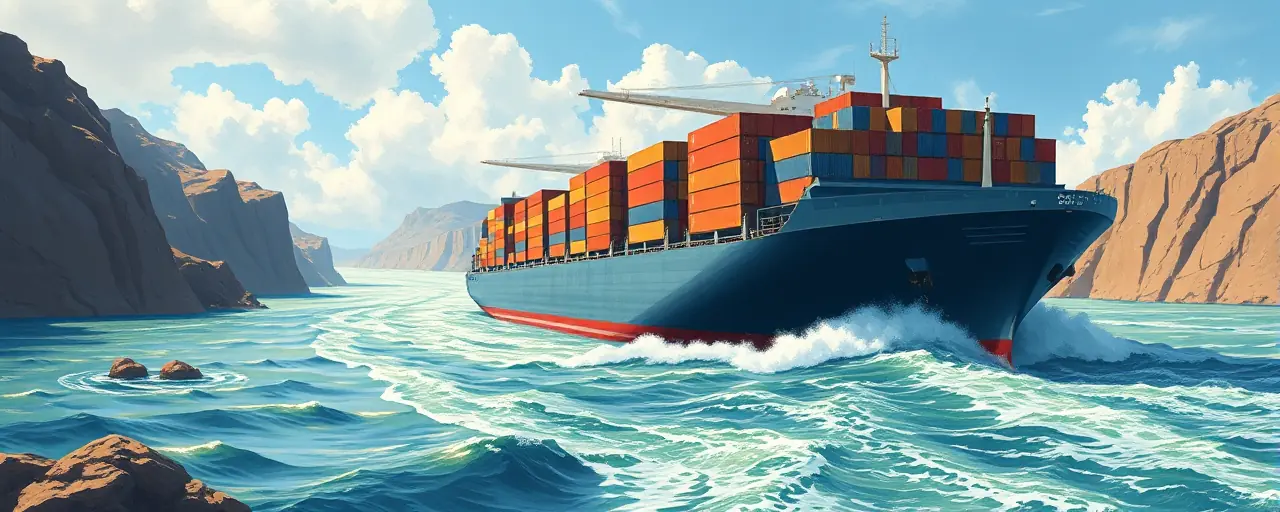A Partnership Under Siege
The call came on April 4, 2025, crackling with urgency and promise. Deputy Secretary of State Christopher Landau dialed Panamanian Foreign Minister Javier Martínez-Acha, not just to exchange pleasantries, but to cement a bond that’s become a lifeline for both nations. They spoke of halting illegal immigration through the treacherous Darién jungle, a feat that’s slashed crossings by nearly 98 percent, and of pushing back against the creeping influence of China’s Communist Party. This wasn’t diplomacy as usual; it was a raw, human stand for security and sovereignty, a testament to what collaboration can achieve when the stakes are existential.
Yet beneath the surface of this triumph lies a deeper story, one that resonates with anyone who’s ever felt the weight of a world in flux. Panama, a slender thread of land stitching two oceans, isn’t just a geopolitical pawn. It’s a nation wrestling with its identity, caught between the pull of global powers and the promise of self-determination. For those of us who believe in justice, equity, and the right to thrive, the U.S.-Panama alliance offers a glimmer of hope, a blueprint for how nations can protect their people without sacrificing their soul.
Let’s be clear: this partnership isn’t about chest-thumping dominance. It’s about survival. It’s about ensuring that Panama’s children don’t inherit a future dictated by foreign agendas or overrun by chaos at their borders. The liberal heart beats loud here, not in blind idealism, but in the gritty reality of what’s at stake, a reality Landau and Martínez-Acha know too well.
Securing Borders, Saving Lives
The numbers tell a story of staggering success. In February 2025, just 408 migrants braved the Darién Gap, down from tens of thousands in prior years. Panama’s closure of jungle paths, paired with beefed-up security patrols and U.S.-provided biometric systems, turned a deadly free-for-all into a controlled corridor. This isn’t abstract policy; it’s flesh-and-blood impact. Families aren’t drowning in swamps or falling prey to gangs anymore. That’s what cooperation looks like when it’s driven by a commitment to human dignity.
Critics, often cloaked in skepticism about U.S. intentions, argue this crackdown stifles migration rather than solving it. They’re not entirely wrong to question motives, but they miss the point. The Darién wasn’t a pathway to freedom; it was a gauntlet of suffering. Historical surges in crossings, fueled by desperation from crumbling economies in South America and beyond, turned the jungle into a graveyard. Panama and the U.S. didn’t just build walls, they built a system, one that identifies criminals while offering safer alternatives. The liberal lens sees this as progress, not perfection, a step toward managing a crisis without losing our humanity.
Contrast that with the hands-off approach some advocate, letting migrants fend for themselves against nature and predators, human and otherwise. That’s not compassion; it’s abandonment. The U.S.-Panama effort, imperfect as it is, prioritizes real-world outcomes over utopian rhetoric. It’s a messy, necessary fight, and it’s working.
Pushing Back the Dragon
Then there’s China, the shadow lurking over Panama’s ports. For years, Beijing’s Belt and Road Initiative wove its tendrils through this trade hub, with companies like CK Hutchison managing key concessions at the Panama Canal’s gateways. That grip loosened in February 2025 when Panama ditched the BRI and sold Hutchison’s operations to BlackRock for $22.8 billion, a move cheered by U.S. officials wary of China’s foothold. Landau praised Panama’s audit of those concessions, a signal that Panama isn’t just a bystander in its own destiny.
This isn’t some sterile economic shuffle. It’s a rejection of authoritarian creep. China’s playbook, honed since Panama flipped recognition from Taiwan to the PRC in 2017, relies on infrastructure as leverage, embedding state-owned firms and tech that could double as surveillance tools. Even now, with Chinese equipment still humming at the ports and a delegation sniffing around in March 2025, the threat lingers. Supporters of deeper ties with Beijing tout the jobs and investment, but at what cost? Trading sovereignty for a quick buck isn’t a deal; it’s a surrender.
The U.S., for all its flaws, offers Panama a counterweight, a partner that, at its best, values democratic resilience over control. Historical echoes of the Monroe Doctrine linger, sure, but today’s alliance is less about domination and more about mutual survival. Panama’s canal, a marvel born of American ingenuity in 1914 and handed over in 1999, remains a global lifeline. Keeping it free from malign influence isn’t imperialism; it’s common sense.
A Future Worth Fighting For
What Landau and Martínez-Acha reaffirmed in that call is a vision that transcends borders. It’s about safety, yes, with joint exercises like PANAMAX Alpha and drug busts netting over 80 tons in 2024. It’s about prosperity, tied to a canal that fuels Panama’s economy and global trade. But above all, it’s about agency, about two nations choosing each other over the chaos of isolation or the chains of exploitation. This is where the liberal spirit shines, in the belief that people, not pawns, drive progress.
The road ahead isn’t easy. Cybersecurity risks from leftover Chinese tech, the legal tangle of port audits, the ever-present pull of migration, all demand vigilance. Yet the U.S.-Panama bond, forged through history from 1903’s independence to 1989’s invasion and beyond, proves resilience isn’t a buzzword; it’s a legacy. This alliance isn’t just holding; it’s thriving, a defiant stand against forces that would unravel it.
So here’s the bottom line: Panama’s fight is our fight. It’s a test of whether nations can unite for something bigger than power grabs or profit margins. The answer, pulsing through that April call, is a resounding yes. For anyone who cares about a world where people matter more than agendas, that’s a victory worth celebrating, and a cause worth defending.
